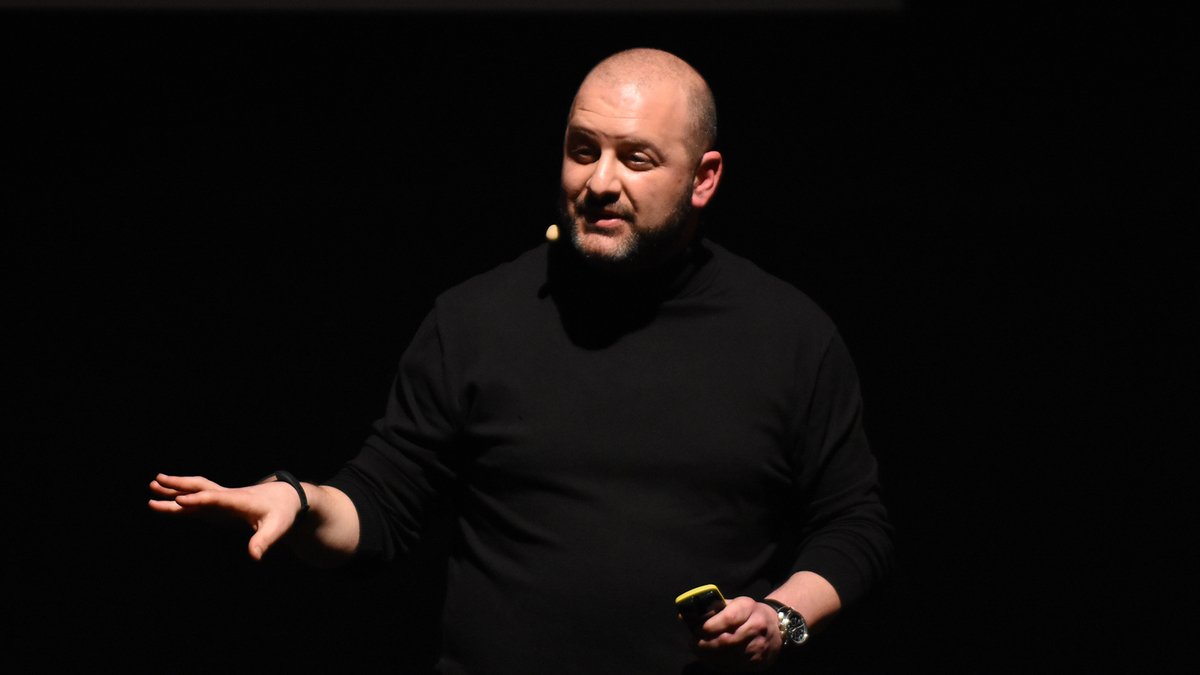News | 09 February 2023
Richard Gerver: “Learn from the past and assume excellence from your staff”
Richard Gerver is a speaker, author and world-renowned thinker. His career began in education, first as a teacher and then as a school principal, when he turned around the fortunes of a failing school and its pupils in just two years. He shared his perspective on the challenges for education for IES school leaders, at the first principals’ conference of the year.

Richard Gerver
Gerver began a teaching career in 1992 and five years later he was identified as one of the most outstanding teachers in the country. By 2005, he had won the prestigious School Headteacher of the Year Award at the British National Teaching Awards, for his work in leading a school from the brink of closure to becoming one of the most innovative in the world. At this year's first principals' conference, Richard Gerver shared his views on how schools should deal with the challenges facing the entire education sector.
The assumption of excellence vs the assumption of incompetence
Traditional organisations operate on the belief that people are just going to be productive if they are forced to be. “Then people are just focusing on meeting their job description. But excellence comes from achieving over the expectations” Richard Gerver said. “In a culture of excellence people don’t spend their time on proving that they’re up to the job. It creates a different kind of expectation.”
“In a culture of assumed incompetence people can always blame their managers or their working conditions, but in a culture of assumed excellence, the spotlight of accountability falls on you”, he said. “The employees perform better, because they are not focussing on just meeting a minimum standard. Google wasn’t there to do the same thing that others had done before. If an educational organisation has the goal to prepare children for the future, it's a more open end than just getting them through the exams.”
Learn from the past
Mr Gerver means that one of the great tragedies in history is that we didn’t listen to the wisdom of older generations, and especially in education.
“We always believe that what’s new is correct and the answer”, he said. “In education we have had the evolution of technology, and the science about how the brain works. So we think that all that was before is dated.”
“But the truth is that what was going on before had a lot of wisdom in it. There’s so much wisdom in older teachers experienced in dealing with children. There's so much that we can learn from the past that we've forgotten”, He said. “There was never a golden age, there have always been good things and things that needed development. The problem is that every new generation thinks that they are creating the golden age. We underestimate lived experience today. Younger teachers should learn from their experienced colleagues.”

“We’re stuck in a doom loop in international education”
Mr Gerver means that striving for more and more efficiency is counterproductive in the educational sector. “We are talking about being innovative, creating an education system fit for future generations. The doom loop is one of efficiency: how do we get our students to pass the exams better. We keep trying to do what we have always done, but more efficiently.”
“Focus on efficiency to increase productivity kills innovation. The world is shifting dramatically. Jobs for life don't really exist anymore. The impact of technology on our life is profound. The education system still believes that if we get more kids through the exams, that’s the answer. The answer is: what we want our children to look like as human beings when they leave us.”
He says that some of the previous generations weren’t under the same pressure as we are, so they developed a greater understanding of human interaction. “The system now is more professionalised, but some of the understanding of how to manage the children in your classroom was greater in the past.”
Mr Gerver emphasises that there is no silver bullet that can solve all problems in education. “One of the problems with the way we look at education is that we look at new discoveries as THE answer. Everyone who is an education expert says cognitive science is the answer, but it's just part of the answer. The problem in education is that we find one tool and think that it's the answer. Like a carpenter with just a hammer.”
“Children are not neat and tidy, every individual is unique. No one silver bullet works for everybody. I've seen so many silver bullets, that everybody flocks around, and then two years later there’s another one.”
Transferable empathy
Mr Gerver stressed the importance of what he calls transferable empathy. “The really important thing about empathy is people being able to project and understand why people are where they are”, he said. “In a community I truly need to understand how the community feels, not just how I feel about a community.”
Mr Gerver says that every locality is totally different and as a school leader you have to have a local colour to how a school is run. You can't have a one-size-fits all policy. You are the guest in their community. Schools must be able to develop their own shapes, their own flavours, their own colours.
For school leaders in an organisation like IES one of the great challenges is how to meet the corporate vision of what IES stands for as an organisation, and not lose the ability to create schools unique to their communities. “Head office needs to make sure that what they do isn't overly prescriptive” he said.
Visit the hairdressers!
An important step to becoming a successful school leader is to get to know the local community where the school is located. The best way to do that is to visit the hairdressers and listen to the latest gossip: “If you're about to become a principal in a community that you don't know. You need to understand a community's needs. Where does the gossip go - the pub or the hairdresser.”
Lars Anders Johansson
Chief Press Officer, Internationella Engelska Skolan

>> Do you want to know more about Richard Gerver? Visit: http://www.richardgerver.com